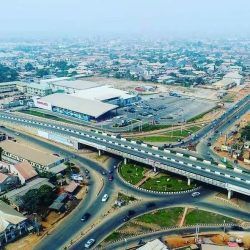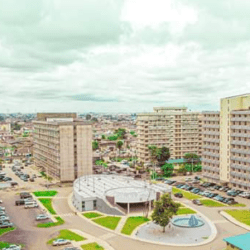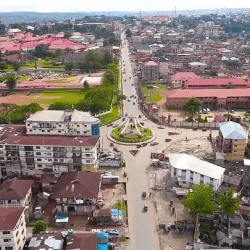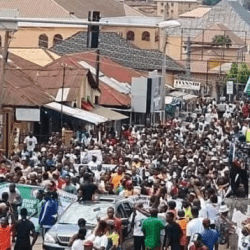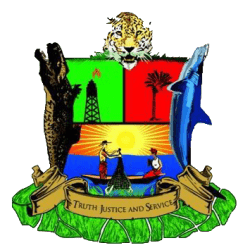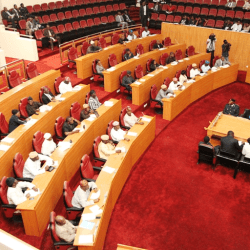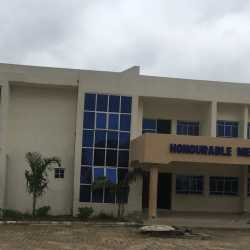Borno State Legislative Council Members, 2013, are:
- ABDULKARIM LAWAN — Speaker, Member Representing Nganzai
- INUSA GAMANDI DANLAMI — Deputy Speaker, Member Representing Shani
- IDRISSA JIDDA — Majority leader, Member Representing Ngala
- AIMU FONI — Minority leader, Member Representing Chibok
- ABUBAKAR TIJANI — Minority Wing, Member Representing MMC
- BABA ALI MODU — Chief M, Member Representing Mafa
- BUKAR GUDUSU — Member Representing Jere
- FALI WABULARI — Member Representing Askira/Uba
- ABBA JATO MOH’D — Member Representing Bama I
- UMAR JAURO AUDI — Member Representing Bayo
- ALIYU MAMMAN KACHALLA — Member Representing Biu
- AYEMU L. GWASHA — Member Representing Damboa
- MOH’D ALH. ZAKARIYA GAJIBO — Member Representing Dikwa
- GUBO MORUMA — Member Representing Gubio
- RAWA GONI BUKAR — Member Representing Gulumba
- ABDULKARIM LAWAN — Member Representing Guzamala
- AHMED USMAN JAHA — Member Representing Gwoza
- AYUBA STEPHEN WAKAWA — Member Representing Hawul
- MUSTAFA ALIBE — Member Representing Kaga
- DIGE MOHAMMED — Member Representing Kala-Balge
- MODU BINTUBE — Member Representing Konduga
- ALH. HARUNA KUKAWA — Member Representing Kukawa
- ABUBAKAR IBRAHIM BABALE — Member Representing Kwaya-Kusar
- AUDU MUSTAPHA — Member Representing Magumeri
- SHETTIMA BUKAR KULLIMA — Member Representing Marte
- MALLAM BUKAR GANA — Member Representing Mobbar
- MAINA MUSTAPHA GARBA — Member Representing Monguno
- WAKIL BUKAR LAWAN — Member Representing Nganzai
Borno
Borno is a state in Nigeria.
It’s one of the six states that form the North-East geopolitical zone of Nigeria.
Borno shares international borders to the North with Niger and Chad as well as with Cameroon to the East. Its Southern and Western borders are shared with Adamawa, Gombe and Yobe States. Maiduguri is the state capital.
State capital: Maiduguri
Local Government Areas: 27
Landmass: 57,798.1 sq km (22,316 sq mi) – 1st of 37
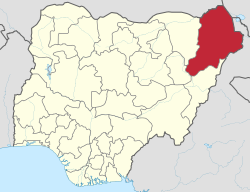
LANDMASS, LOCATION
Borno State has an area of 57,798.2 square kilometres.
It lies roughly at latitude 11°30’ North and longitude 13°00’ East.
HISTORY AND PEOPLE
The first settlers of Borno State were the Teda (Tibesti), Kanuri and Kanembu who lived around the state’s lake and rivers. These people were also called Sao. The Sefawa later displaced them in the fifteenth and sixteenth centuries.

Borno State has its roots in the move by the Saifawa rulers (Mais) of El Kanemi to the area west of Lake Chad in the fourteenth century. These people were referred to as the people from Bahr-el Nur; this name was later corrupted to Borno. It was under the Mais that the Kanuri emerged as a nation. The Fulani jihad of the nineteenth century greatly weakened the authority of the Mais who were eventually displaced by Muhammed El-Amin lbn El-Kanemi, a Kanembu Islamic scholar who established the El-Kanemi dynasty, took the title of Shehu and transferred the capital to Kukawa. Rabeh, a Shuwa Arab, sacked much of Borno in 1893 and became its ruler, transferring the capital to Dikwa.
European colonisation in the last decade of the nineteenth century led to Rabeh’s defeat and the dismemberment of the Borno Empire. Following its division between the British and the French at the turn of the twentieth century, Borno State became part of Northern Nigeria. It was part of the Northern Region in the three-region structure of 1954 and part of North-Eastern State following the establishment of twelve federal states by General Yakubu Gowon’s military government. It was established as its own entity in 1976 following the dissolution of the North-Eastern State. The state’s borders were further adjusted when Yobe was excised from it in 1991.
Borno State is heterogeneous with twenty-eight (mostly Chadic) languages. The Shuwa Arabs, Kanuri and Marghi are the most represented people in the state and Kanuri is its dominant language. Other ethnic groups include the Hausa, Fulani and a number of tribes from southern Nigeria. Islam is the major religion in the state. There is a Christian minority concentrated around Maiduguri.
CULTURE
The people of Karai-Karai and two other tribes in Potiskum, Nangere and Fika local government areas mark the Barakau festival in June and September every year. During the festival, the people kill a cock of over one year old and splash its blood on the farm implements of each household.
Other cultural activities include the Durbar and Menwara festivals. The durbar festival is marked with display of horsemanship and reflects the state cultural diversity.
MAJOR TOWNS AND CITIES
Maiduguri (capital), Biu, Bama and Dikwa.
LOCAL GOVERNMENT AREAS

GOVERNORS
Musa Usman (Governor– Military): May 1967 – July 1975
Muhammadu Buhari (Governor– Military): July 1975 – March 1976
Mustapha Amin (Governor – Military): March 1976 – July 1978
Tunde Idiagbon (Governor– Military): July 1978 – October 1979
Mohammed Goni (Governor – Civilian (Great Nigerian People’s Party)): October 1979 – October 1983
Asheik Jarma (Governor – Civilian (Nigerian People’s Party)): October 1983 –December 1983
Abubakar Waziri (Governor– Military): January 1984 – August 1985
Abdulmumini Aminu (Governor – Military): August 1985 – December 1987
Abdul One Mohammed (Governor – Military): December 1987 – December 1989
Mohammed Maina (Governor – Military): December 1989 – June 1990
Mohammed Marwa (Governor – Military): June 1990 – January 1992
Maina Lawan (Governor – Civilian (Social Democratic Party)): January 1992 – November 1993
Ibrahim Dada (Administrator – Military): December 1993 – August 1996
Victor Ozodinobi (Administrator – Military): August 1996 May –1997
Augustine Aniebo (Administrator – Military): May 1997 – August 1998
Lawal Haruna (Administrator – Military): August 1998 – May 1999
Mala Kachalla (Governor – Civilian (All People’s Party/; All Nigeria People’s Party)): May 1999 – May 2003
Ali Sheriff (Governor – Civilian (All Nigeria People’s Party/People’s Democratic Party)): May 2003 – May 2011
Kashim Shettima (Governor – Civilian (All Nigeria People’s Party)/All Progressive Congress): May 2011 – May 2019
Babagana Zulum (Governor – Civilian (All Progressive Congress)): May 2019 – Present
ECONOMY
Borno State is primarily an agrarian society. The majority of the people are farmers, herdsmen and fishermen. There is also considerable local trade in sorghum, millet, corn (maize), rice, cotton and indigo.
The state is the most important livestock-producing area in Nigeria, an industry dominated by the Fulani and Shuwa. Livestock (mainly cattle with some goats and sheep), cattle hides, goatskins and sheepskins, finished leather products, dried fish, crocodile skins, groundnuts and gum arabic are all exported from Maiduguri.
Cattle rearing and poultry farming take place in the surrounding countryside, as does fishing along the shores of Lake Chad and the Yedseram river. Other local industries include cotton weaving, dyeing and the tanning of leather.

The mineral resources found in the state include clay, salt, potash, limestone, kaolin, sandstone, iron ore, uranium, quartz, magnesite, mica and granite.
EDUCATION
The tertiary institutions in the state are University of Maiduguri, Borno State University, Maiduguri, Ramat Polytechnic, Maiduguri, Sir Kashim College of Education, Waka Biu; Umar Ibn Ibrahim El Kanemi College of Education, Science and Technology, Bama; Mohammet Lawan College of Agriculture, Maiduguri; Mohammed Goni College of Legal and Islamic Studies, Borno College of Agriculture and the Federal Staff Training Centre, Maiduguri.
FAMOUS SITES
Chad Basin Natural Park, Chingurmi-Duguma

The park has three parts.
In the Chingurmi-Duguma area of the park 66 species of birds have been recorded such as the black-crowned crane, pallied harrier, African-collared dove among others.
The Bula Tura Oasis area is a number of swampy valley called oases and is home to some rare desert wildlife which include ostrich, glossy ibis, ratel, and mongoose.
The Bada Nguru Wetlands area has the Dagona Waterfowl Santuary. The sanctuary is significant as it is host to migrant European birds that flock there in the thousands every year as they escape Europe’s winter.
Biu Plateau, Biu

The Biu plateau contains a number of extinct volcanoes.
It is the source of many tributaries of the Gongola River. It has an average elevation of 2,300 feet and covers 5,200 square kilometres.
Do Rabeh’s Fort, Dikwa

Located in Dikwa town, Rabeh Fort is a 125-year-old monument that depicts the rich cultural heritage of the people of Borno State.

